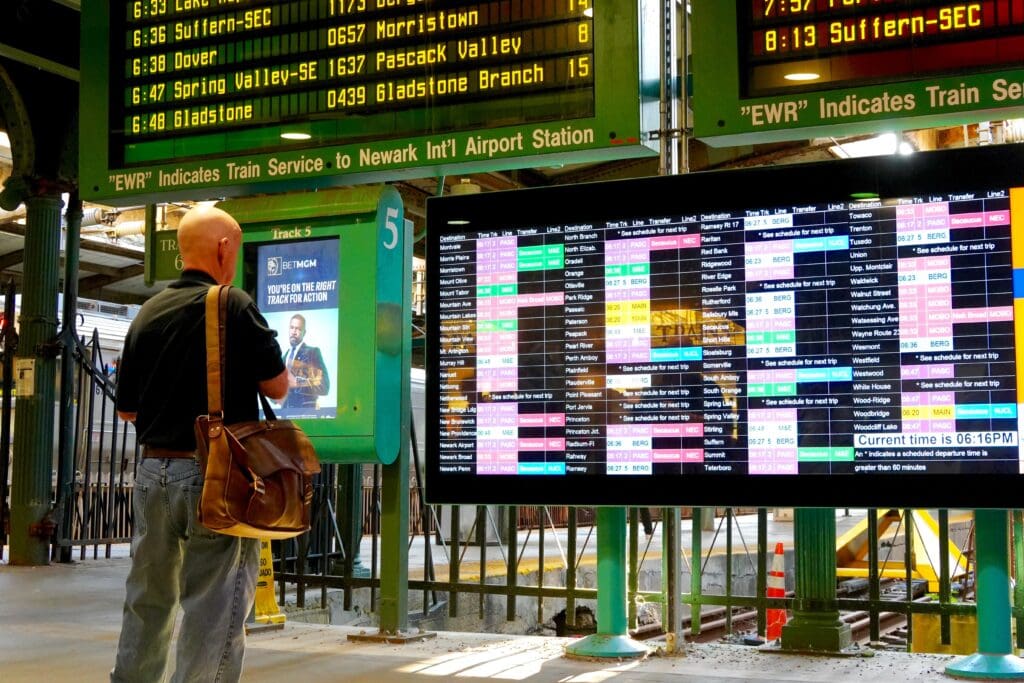New Jersey’s commuter rail system is facing the threat of its first major strike in over four decades, with a possible walkout by train engineers looming as early as Friday morning. The engineers’ union has indicated that, absent a contract agreement by midnight Thursday, they plan to stop work—potentially sidelining the majority of NJ Transit’s rail operations.
At the heart of the dispute is compensation. The union contends that NJ Transit engineers are underpaid compared to their peers at neighboring transit systems like the Long Island Rail Road and Metro-North. Talks have dragged on for months without resolution, and tensions have grown increasingly strained as the deadline approaches.
Kris Kolluri, CEO of NJ Transit, has argued that the raises being demanded would place an unsustainable financial burden on the agency. He emphasized that concessions made to one union would set a precedent requiring similar agreements with the agency’s other labor groups.
Negotiations resumed this week in Washington, D.C., under the oversight of the National Mediation Board, with both parties making one last effort to prevent a work stoppage. While Kolluri described the conversation as productive, he acknowledged that major gaps remain.
If no agreement is reached, NJ Transit plans to roll out a limited contingency plan. The agency has arranged for chartered buses to serve key park-and-ride locations and connect riders to New York City via the Port Authority Bus Terminal or PATH train stations. But those buses would only cover about 20 percent of the normal rail ridership—leaving the majority of daily commuters scrambling for alternatives.
In anticipation of potential disruption, NJ Transit is urging employers to allow remote work where possible. Officials warn that a prolonged strike could last weeks.
Could the Strike Actually Happen?
While many labor disputes end in compromise before reaching the breaking point, this standoff appears more intense than past negotiations. A strike was narrowly avoided in 2016, but this time, the rhetoric has grown especially combative.
Kolluri recently drew criticism for publicly questioning the mental fitness of Thomas Haas, who chairs the engineers’ union, after members rejected a previous deal. Meanwhile, union leaders accuse NJ Transit of refusing to negotiate in earnest. National union president Mark Wallace claimed the agency has shown little interest in reaching a fair resolution.
The Core of the Dispute
Unlike most contract talks that center on working conditions or scheduling, this impasse is almost entirely about pay. Union leaders claim they’ve accepted the vast majority of NJ Transit’s non-monetary terms—reportedly around 95 percent. But pay remains a sticking point.
The agency says it previously offered a deal that would raise full-time engineers’ average annual earnings by nearly $35,000. Union officials dispute those figures and maintain that their request—roughly $173,000 annually—would simply bring them in line with engineers working for nearby transit agencies.
Kolluri, however, insists that granting those raises would ripple through all of NJ Transit’s labor contracts, making the proposal unaffordable. Just last week, NJ Transit struck a deal with its largest union, representing 5,500 bus workers, under different terms.
What Riders Can Expect If the Strike Moves Forward
New Jersey hasn’t seen a transit strike since 1983, which lasted nearly a month. Should this one occur, the agency will implement a scaled-down service plan reminiscent of that era.
Buses will be dispatched from satellite lots across the state beginning May 19, though none will be available on the strike’s first day. These buses, each carrying up to 100 passengers, fall far short of matching the capacity of commuter trains, which can carry 1,000 riders or more.
Transit officials predict that some riders will shift to existing bus services or carpool into the city—an adjustment likely to strain traffic conditions on already congested highways.
However commuters adjust, one thing is certain: travel across the region could become significantly more difficult for tens of thousands of New Jerseyans in the days ahead. The potential transit strike comes at a time where New Jersey’s Newark Airport is also facing its own set of difficulties.
The New Jersey Digest is a new jersey magazine that has chronicled daily life in the Garden State for over 10 years.
- Staffhttps://thedigestonline.com/author/thedigeststaff/
- Staffhttps://thedigestonline.com/author/thedigeststaff/
- Staffhttps://thedigestonline.com/author/thedigeststaff/
- Staffhttps://thedigestonline.com/author/thedigeststaff/





